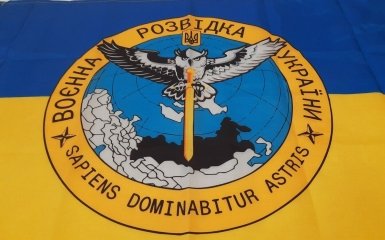The international military publication Irregular Warfare Initiative investigated the activity of the Defence Intelligence of Ukraine (DIU) and its chief, Lt Gen Kyrylo Budanov, in public communications.
Points of attention
- Ukrainian military intelligence demonstrates an innovative approach to public communication and active public engagement through social networks.
- Western analysts believe that the total closure of intelligence services can be a disadvantage in modern conditions favourable for public communication.
- Under Kyrylo Budanov's leadership, the DIU sets new standards for controlled publicity and public active participation in intelligence.
- An innovative DIU initiative is the deployment of the "Main Intelligence Bot" to collect intelligence through social networks.
- Ukrainian intelligence's activity in social networks demonstrates the achievements and effectiveness of actions in the fight against the enemy.
DIU Public communication corresponds to the modern war conditions
The material analysis shows what tools the diu uses and what effect it achieves. After all, whether intelligence structures should be public and open in cooperation with society often gives rise to discussions.
Public communication of the Defence Intelligence of Ukraine (DIU) has its own tasks and meets the conditions of modern warfare. It's only a matter of time before Western intelligence agencies adopt these techniques.
At the same time, the analysts of the Irregular Warfare Initiative conclude that the total closure of the special services has become a disadvantage rather than an advantage in the modern world. In this context, Ukrainian intelligence is an innovator.
Among the arguments, Western analysts cite:
the possibility of attracting financial support for special intelligence units,
humanitarian missions, increased recruiting opportunities
using public platforms to demoralise the enemy.
A significant portion of DIU’s social media content highlights successful operations against Russian forces, especially the exploits of various special forces units operating under DIU command like Group 13, Artan, and Timur. These units have garnered attention for their achievements, such as Group 13’s recent destruction of three Russian naval vessels in the Black Sea. Exacerbating the situation for the Russians, the attacks on these ships were not only filmed and subsequently posted online, but the DIU also managed to confirm its success by intercepting and publicly sharing communications of Russian navy personnel discussing the sinking of these ships. Without hesitation, the DIU posted these sensitive intercepts online and, in doing so, has challenged traditional views that intelligence services should prioritize the protection of their collection assets.
Ukrainian military intelligence came "From the Shadows" and works publically
Thanks to forming a positive public image, the Defence Intelligence of Ukraine established the collection of natural intelligence through social media.
"DIU is noticeably different from traditional intelligence practices. Ukrainian intelligence came out of the shadows and became transparent thanks to active participation in social networks. Under the leadership of Lieutenant General Kyrylo Budanov, who enjoys an almost cult status among Ukrainians, the DIU skilfully uses its public presence," the article says.
The authors of the Irregular Warfare Initiative believe that the course of controlled publicity taken by the DIU was generally the right decision in the conditions of modern warfare and the merit of the current chief of the service, Lt Gen Budanov.
"An innovative facet of the HUR’s engagement strategy via social media is the deployment of the ‘Main Intelligence Bot,’ a Telegram bot conceived to leverage the vigilance of the Ukrainian populace for intelligence-gathering efforts. This initiative converts ordinary citizens into active participants, empowering them to contribute actionable intelligence directly," analysts say.
Note that the Irregular Warfare Initiative is an international military publication founded in 2020 in the United States by active military personnel. The group specialised in researching security challenges and studying the practices of irregular warfare (i.e. conducting military operations using non-traditional methods).




